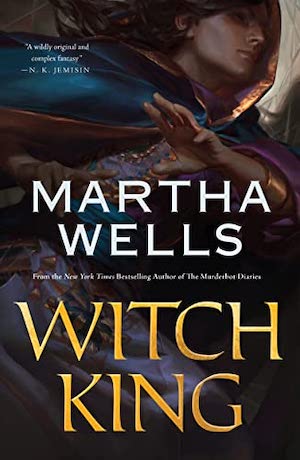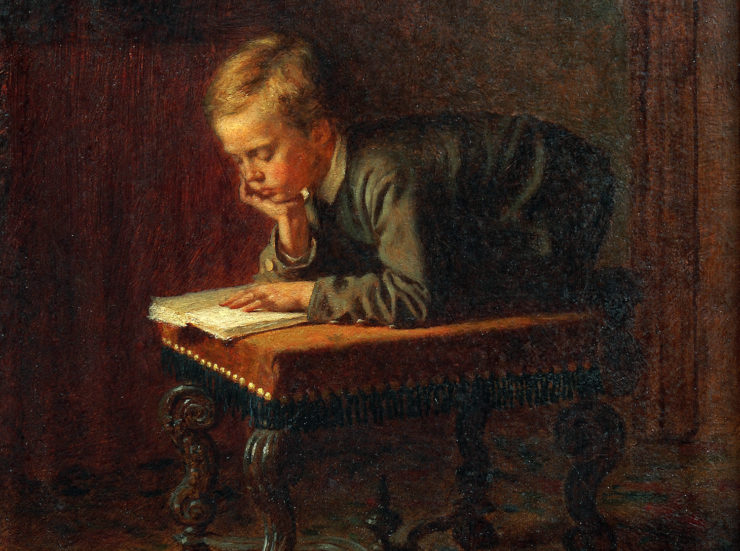It’s like clockwork, if you have a very repetitive and broken clock: Every so often, on one social platform or another, an argument kicks up about what counts as reading a book. A long time ago, people would occasionally argue about whether ebooks were real books—a line of fruitless discourse that seems almost funny now. (Somewhere, someone is probably still arguing about this. Let’s ignore them.)
The one that keeps coming around, a broken clock with a discordant chime, is audiobooks. There’s a semantics argument buried in here about reading vs. listening, but that’s picking an uninteresting nit. Audiobooks count as reading. Listening to an audiobook is no better or worse than reading a book on paper or a screen. You’ve still experienced the same story, just in a different format.
There’s no wrong—or right—way to read a book. There are just the ways that work and don’t work for each reader. Sometimes that means reading fast; sometimes it takes months. Sometimes the right way to read a book is to put it down entirely, and find it again later.
So why does this argument keep happening? The list of reasons is long, and includes traditionalists, ableism, simple pettiness, and people feeling defensive about their own choices. But maybe it’s also a little more personal than that.
Some of it is, of course, just the internet, where we fight about everything. Books are online, so we fight about them, but books are still books, and so the fight is specific. Reading is a solitary activity. It’s seemingly the opposite of the internet: a quiet place with a central narrative. (To be fair, both can have an overabundance of conflict.)
And yet we’ve created a million ways to bring these things together, from Goodreads to BookTok and everything that came before and will come after. Some of the inevitable conflict is the same conflict that plays out across the internet in every arena: forceful opinions get more traction and attention than mild ones, so everything becomes love or hate, best or worst, transformative or destructive. Nuance, no matter how much we love it in fiction, goes out the window.
Reading isn’t just solitary; it’s deeply personal. No two people will ever read a book exactly the same way—not physically speaking, in terms of where you read it, and how fast, and how old you are, and not emotionally speaking, either. Our experiences with books are our own, no matter how much some of us talk about them online.
And that deep, intimate connection—the very thing that makes books such a big part of our lives—it can be deeply weird to see it play out a different way for a different person. There are books I don’t talk about much because I’m just not capable of processing other people’s negative opinions of them. I need to keep those close to my heart and let them be mine in my own way. There are books about which I bite my tongue and sit on my hands and don’t say the critical things I want to say, because I can tell they’re gold to someone else.
It can feel, sometimes, like someone else’s experience of a book is in conflict with your own. Like one of you is doing it wrong. You’re not: there is no wrong. But that feeling happens and then we get arguments and gatekeeping, people trying to draw lines about how a book should be read and by whom, and in what format, and under what circumstances, and how of course no one else will appreciate it properly. Sometimes people do this with the intent to create a little garden where books are a certain, perfect way. It’s meant to be cozy and comforting for them. That garden, though, still has a gate.
The argument about whether audiobooks “count” is an argument that rises from people feeling protective and defensive about how they spend their time, and how they define themselves as “readers.” You can’t do much else while you read print—well, maybe listen to music, depending on how you’re wired. But you can read an audiobook while driving, washing dishes, exercising, crafting, showering, and probably a whole lot of other things I’ve never considered. For a certain kind of book person, that isn’t pure reading, and they reject it.
But reading isn’t pure. Reading is built of trees and dirt and ink and context, of feelings and thoughts and the whole of what’s inside your head colliding with a select piece of what was inside the author’s head when they wrote the book you’re reading. It’s cross-pollination. It’s chocolate in the peanut butter. And, crucially, it’s not about the object that is the book. It’s not about the CDs we used to listen to audiobooks on, or the screen you’re reading this on. It’s about ideas and words and thoughts, which swirl around impurely from person to person.
Book purists, like so many kinds of purists, should be allowed to treat books how they like. They just shouldn’t be allowed to impose those ideas on the rest of us, who are not book purists but simply readers. If you are not a purist, there is no wrong way to read a book. This isn’t just about format, but about so many implied ideas about how we ought to read. For example:
You don’t have to finish every book you start. Life is too short. There are so many books. Obligation is no way to enjoy a story. Not every book is going to click with you. And sometimes you pick a book up at the wrong moment! N.K. Jemisin is now one of my favorite authors, but when The Hundred Thousand Kingdoms came out, I kept just not reading it. I couldn’t tell you why. But I devoured the Dreamblood Duology and everything since, and now I’m doling her first three books out to myself, slowly, so I can enjoy them for longer.
There is no right or wrong time to read a book. It’s never too late. It can, sort of, be too early, but then you can always go back. (The only thing I remember from my 8-year-old self’s reading of A Wrinkle in Time is that I didn’t understand anything, and It was terrifying. I got a lot more out of it later.)
You don’t have to read the books everyone else is reading. When I was a bookseller, if there was a very popular book that everyone else in the store was reading, I didn’t read it unless I really wanted to. Why, when everyone else already had an opinion, and I could point customers to my colleagues or say that everyone else loved it? Did anyone need another opinion on Red Rising? Nah. I’d be better off finding something unsung to recommend. Sometimes you’re better off walking your own path. Learning to enjoy not having an opinion is truly one of the greatest parts of being an online person, reader or otherwise.
Buy the Book


Witch King
You don’t have to treat your books like gold. Write in them. Dogear the pages. Use bacon as a bookmark if you really want to. Or wrap them in cellophane and keep them out of the sun, and handle them only with white gloves. As Anne Fadiman once explained, there are courtly and carnal lovers of books: those who treat the objects like rare jewels, and those whose books look entirely different when they’re finished reading them. You do you. Don’t let any of those memes call you a chaos goblin unless you want to be one. (You can also be both kinds of book lover for different books. It’s kind of like being an introvert and an extrovert depending on the situation.)
Read books in whatever format you like to read them. Read them on your phone. Read them in bed. Read while eating. Go to a bar and get a drink (of any sort) and read alone. (Reading at a bar alone is one of life’s great pleasures, as far as I’m concerned.) Listen to books while you clean the bathroom. If I could keep earbuds in my ears I’d probably listen to books while running. Do whatever works. The point is the words, not how you get them into your brain.
It’s okay to skip parts. When my mom read The Lord of the Rings to me when I was 10, I insisted she read every poem and song. She resisted, but I held strong. And for the next four or five years, when I made my then-annual reading pilgrimage to Middle-earth, what did I do? I skipped all the goddamn songs. The child purist in me had been defeated by the realization that there were so many more books to read. Your experience with a book is just that: yours. There are books where you can’t skip anything without missing out considerably. But short story collections? Essays? Skip as needed. Not everything has to be for you.
You can be well-read without having read the classics. What does well-read even mean? Decide that for yourself, and shape your reading to suit.
If you’re a reader, you read. That’s all. Ideally, for me, this means reading widely, diversely, curiously, with as few preconceived notions as possible about what kind of books you do and don’t like. Just keep turning pages—or hitting play.
Originally published July 2021.
Molly Templeton lives and writes in Oregon, and spends as much time as possible in the woods. You can also find her on Twitter.










